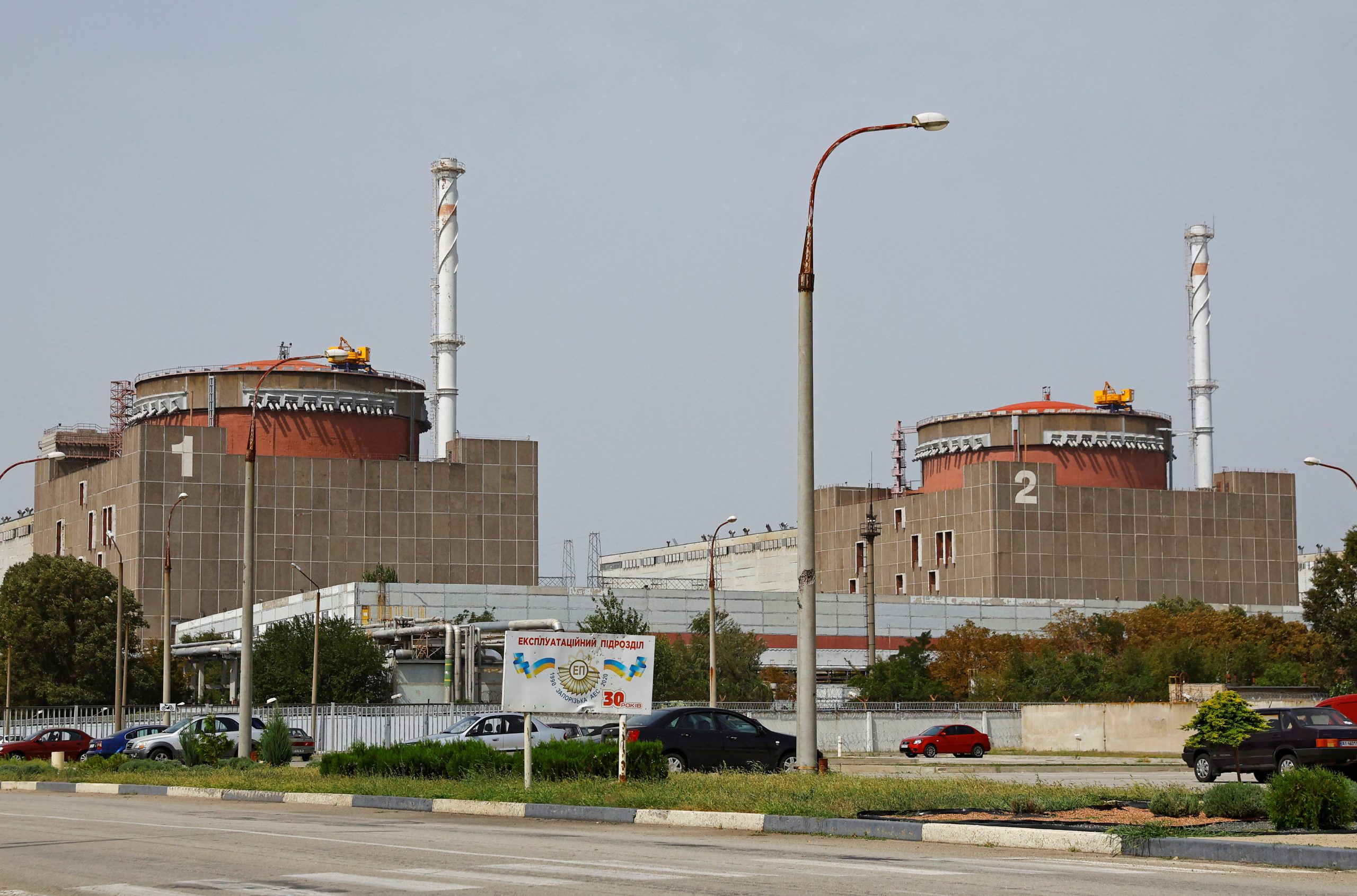
Chris Lange, FISM News
[elfsight_social_share_buttons id=”1″]
Authorities began distributing iodine tablets to Ukrainians living near the Russian-controlled Zaporizhzhia nuclear power plant Friday amid fears of an impending radiation leak after the plant was knocked offline when a fire damaged its transmission line, the Associated Press reported Friday.
It is unclear at this time what caused the fire. Nuclear experts for weeks have been raising the alarm that ongoing fighting near the vulnerable plant, which is Europe’s largest nuclear power station, could trigger a major catastrophe.
Iodine tablets are used to prevent the absorption of radioactive iodine by the thyroid gland.
Ukrainian workers who operate the facility have remained there under occupation by Russian forces. Both sides accused one another of the transmission line damage that knocked the plant off the power grid. Without power, the reactors’ critical cooling systems are rendered completely ineffective which would result in a nuclear meltdown.
The country’s nuclear power agency, Energoatom, said the plant had been reconnected to the grid and was producing electricity “for Ukraine’s needs.” The agency cautioned that the potential threat from the plant “could be ten times greater than the scale of the Fukushima and Chernobyl disasters” on their website and accused Russia of “nuclear blackmail.”
In his Thursday evening video address, Ukrainian President Volodymyr Zelenskyy praised the Ukrainian workers at the site for their continued operation of the plant under Russian occupation and military threat and called on Western leaders to force Russia to withdraw from the site, Reuters reported.
“The key thing is … international pressure is needed that will force the occupiers to immediately withdraw from the territory of the Zaporizhzhia nuclear power plant,” Zelenskyy said.
Officials with the U.N.’s International Atomic Energy Agency (IAEA), the U.N.’s nuclear watchdog, said plans to visit the site are underway following weeks of efforts to make arrangements to inspect and secure the plant, though no specific date was given.
“The IAEA’s presence will help stabilize the nuclear safety and security situation at the site and reduce the risk of a severe nuclear accident in Europe. The mission is expected to take place within the next few days if ongoing negotiations succeed,” IAEA Director General Rafael Mariano Grossi said Tuesday in a press release.
Zelenskyy, however, said they aren’t moving quickly enough to intervene.
“The IAEA and other international organizations must act much faster than they’re acting now. Because every minute the Russian troops stay at the nuclear power plant is a risk of a global radiation disaster,” he said.
Lana Zerkal, an adviser to Ukraine’s energy minister, told Ukrainian media that the logistics for an IAEA visit were still being worked out and accused Moscow of attempting to sabotage the visit.
